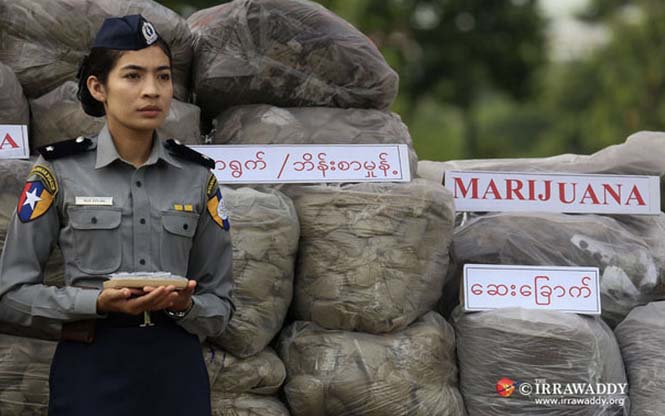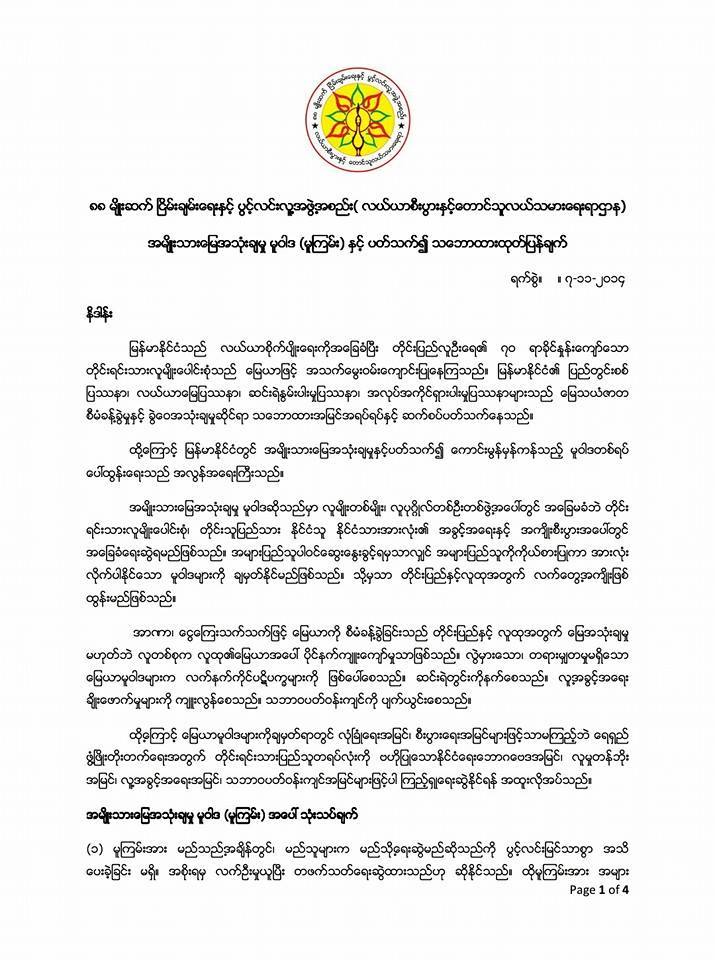Posts Tagged ‘poverty’ (7 found)
Pro-Business or Pro-Poor?
 Making Sense of recently unveiled Draft National Land Use Policy
Making Sense of recently unveiled Draft National Land Use Policy
October 18, 2014 saw the official unveiling by the government of the Republic of the Union of Myanmar of its much-awaited draft national land use policy. Once it is finalized, the new policy will guide the establishment of a new overarching framework for the governance of tenure of land and related natural resources like forests for years to come. As such, it is of vital importance.
This preliminary assessment aims to shed light on the key aspects of the draft policy and its potential implications for the country’s majority rural working poor, especially its ethnic minority peoples, although they are not the only ones whose future prospects hinge on how this policy making process will unfold. […]
• • •Joint Submission on the Proposed World Bank Group’s Country Partnership Framework (CPF) in Myanmar
We, the undersigned organizations in Myanmar and other countries, respectfully submit these comments to the World Bank Group to inform the development of the Country Partnership Framework for Myanmar. We belong to civil society organizations and ethnic community networks with a focus on human rights, environment, peace and mediation, and good governance with significant expertise and experience in Myanmar […]
• • •Another Great year for Burma’s Drug Trade
 It is of no surprise that the latest report from the UN’s Office for Drugs and Crime (UNODC) on synthetic drugs finds that methamphetamine production in Burma continues to rise. Burma is already the second highest producer of opium in the world after Afghanistan and the fact that production rates of both opium and methamphetamine are increasing year on year points to a more complex picture than simply increase in demand. Poverty, displacement, conflict, and government complicity are all factors in this miserable state of affairs.
It is of no surprise that the latest report from the UN’s Office for Drugs and Crime (UNODC) on synthetic drugs finds that methamphetamine production in Burma continues to rise. Burma is already the second highest producer of opium in the world after Afghanistan and the fact that production rates of both opium and methamphetamine are increasing year on year points to a more complex picture than simply increase in demand. Poverty, displacement, conflict, and government complicity are all factors in this miserable state of affairs.
According to the UNODC report, “2014 Global Synthetic Drugs Assessment – Amphetamine-type Stimulants and New Psychoactive Substances,” that was released in Tokyo, Japan on 20 May 2014, seizures of methamphetamine in Asia have tripled over the past five years. The report highlights how most of the methamphetamine seized in Thailand, Bangladesh, and Burma itself, originates in Burma, while Jason Eligh, country manager for UNODC Burma states that, “according to expert perception, a large share of methamphetamine pills seized in China in 2012 originated from Myanmar.” This report complements a UNODC report on opium production in Burma released six months ago that showed a 26% increase from the year before, the highest recorded levels since monitoring began in 2002 […]
• • •Displacement and Poverty in South East Burma / Myanmar
A new government in Burma/Myanmar offers the possibility of national reconciliation and reform after decades of conflict. Every opportunity to resolve grievances, alleviate chronic poverty and restore justice must be seized, as there remain many obstacles to breaking […]
• • •Promoting Reconciliation in Burma
An alliance of humanitarian agencies working with displaced persons from Burma/Myanmar believes the current window of democratic reform is the best opportunity in decades to resolve ethnic conflict. The prospect of a genuine and inclusive process of national […]
• • •Poverty Shades Elections in Eastern Burma
Regardless of the outcome in Burma’s first elections for twenty years, the incoming government will inherit a legacy of widespread and chronic poverty throughout the country. Government statistics disguise the extent of suffering, but aid agencies report the vulnerabilities in eastern Burma have been exacerbated by protracted armed conflict and restrictions on humanitarian access […]
• • •









 All posts
All posts